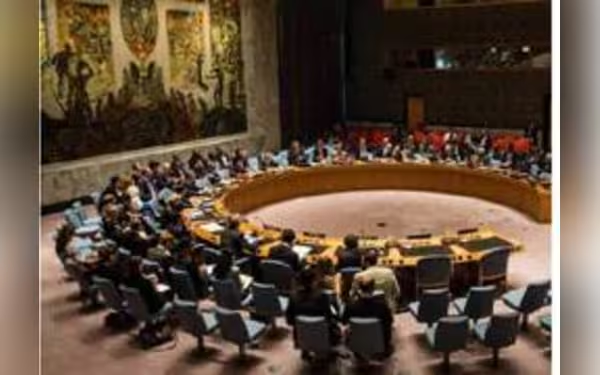Wednesday, January 15, 2025 02:01 PM
Pakistan Advocates for Non-Permanent UNSC Membership Expansion
- Pakistan supports increasing non-permanent UNSC members.
- Ambassador Akram emphasizes democratic representation.
- G-4 countries push for permanent seats, facing opposition.
 Image Credits: nation_pk
Image Credits: nation_pkPakistan calls for expanding non-permanent UNSC seats, emphasizing democratic representation and opposing new permanent members.
In recent discussions surrounding the reform of the United Nations Security Council (UNSC), Pakistan has firmly stated that the focus should be on increasing the number of non-permanent members rather than adding new permanent seats. This stance comes from Pakistan's position within the Uniting for Consensus (UfC) group, which advocates against the introduction of new permanent members in the UNSC. The call for reform is not new; it has been a topic of debate for many years, with various countries vying for a more significant role in global governance.
Ambassador Munir Akram, Pakistan’s permanent representative to the UN, emphasized that the UfC's proposal to expand the UNSC to include 11 or 12 new non-permanent members would enhance the Council's effectiveness, representation, and accountability. He articulated that the current structure, which consists of five permanent members and ten non-permanent members, is outdated and does not reflect the realities of today's geopolitical landscape.
During the resumed Inter-Governmental Negotiations (IGN), Ambassador Akram pointed out that the UfC's approach is democratic and aligns with the UN Charter's principle that the Council should act on behalf of all member states. He argued that adding more non-permanent members, who would be elected periodically by the General Assembly, would ensure equitable representation, a key goal of the reform process.
Since the General Assembly began discussions on UNSC reform in February 2009, progress has been stymied by the G-4 countries—India, Brazil, Germany, and Japan—who continue to push for permanent seats. In contrast, the UfC, led by Italy and Pakistan, remains steadfast in its opposition to any additional permanent members. As a compromise, the UfC has suggested creating a new category of members with longer terms and the possibility of re-election, which could provide a more balanced approach to representation.
Ambassador Akram also addressed the claims made by countries aspiring for permanent membership, dismissing their references to 'new realities.' He highlighted that there are numerous states contributing significantly to global peace and security, suggesting that the current push for permanent seats is unjustified. He stated, "Any country seeking a more frequent presence on the Security Council should do so by subjecting itself to the democratic process of periodic election by the General Assembly." This statement underscores the importance of democratic principles in international governance.
Furthermore, Ambassador Akram noted that the non-permanent members, often referred to as the E-10, have been instrumental in fulfilling the responsibilities of the UNSC, especially amid deep divisions among the permanent members. He argued that increasing the number of non-permanent members would inject dynamism into the Council's operations and help bridge the gaps between the permanent members.
The debate over the UNSC's structure is not merely about power dynamics; it is about ensuring that all member states have a voice in global governance. Pakistan's advocacy for more non-permanent seats reflects a broader desire for a more inclusive and representative international system. As discussions continue, it remains crucial for the global community to consider how best to reform the UNSC to meet the challenges of the 21st century while upholding the principles of democracy and equity.













